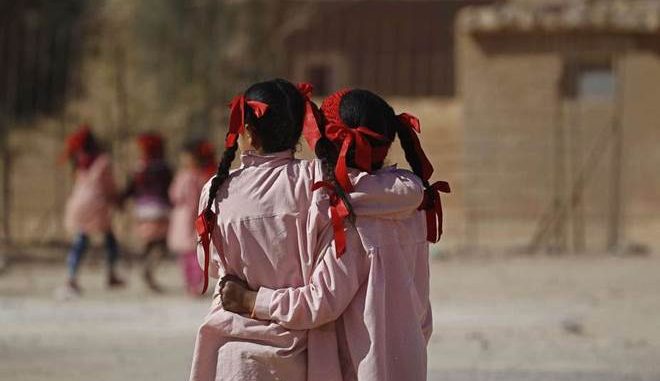
By Ajoy Khandheria
Preaching what is right or wrong doesn’t work. It is by disassociating morality from menstruation that we can focus from health, education and development viewpoints
While the supposedly ‘civilised’, ‘educated’ and ‘progressive’ urban India is still debating the topic of menstruation and the associated stigma, breaking the mould in rural areas is far more challenging. In rural India, the outdated value system related to periods, sexuality, etc, are much ingrained, the resistance is severe, and much is kept literally under wraps—like the local chemist handing over a packet of sanitary napkin.
Government data suggest positive statistics pertaining to the use of hygienic methods of managing menstrual periods. As per NFHS-4, 42% women in the sample age group of 15-24 use sanitary napkins and 16% use locally-prepared napkins, while 62% use cloth. If the data is to be believed, at least 58% are estimated to be using a hygienic method of menstruation. However, the menstrual age of women goes up to 40-45 years, and despite the statistics stating over 48% rural women using hygienic methods, a large section of women has been left out of the survey. The picture on the ground is a lot different. There are several challenges one faces while trying to bring about such change in rural areas.
Patriarchal social structure: The social fabric in rural areas is more men-oriented; women individuality and needs come second. There is even lesser sensitivity with respect to women’s sexuality and physiology.
Taboo subject: How does one break the notions on a matter if the people are silent over it? Menstruation remains one of the biggest taboo subjects.
Financial viability: Making sanitary pads affordable is one thing; ensuring that women continue to use these is quite another—it’s like asking money-starved rural families for added financial investment.
With our latest initiative of sanitary pads dispensation, we have started an on-ground menstrual hygiene awareness initiative called “Chuppi Todo”, or “break the silence”. Being a private rural healthcare delivery enterprise, financing a campaign that can be scaled to multiple states and remote regions was challenging. With an innovative strategy in the pilot run, a part of the initiative is now being crowdfunded. Also, the initiative is integrating a multi-layered approach that focuses on awareness, accessibility, behavioural change, and identifying the target groups to get on-board. Some measures that are being initiated include:
Disassociating morality with the topic: Preaching what is right or wrong doesn’t work. It is by disassociating morality from menstruation that we can focus from health, education, development viewpoints. These views are more acceptable and agreeable to the rural people.
Promote health & cost benefits: It is well-documented that poor menstrual hygiene practices have serious health challenges, from urogenital or non-sexually transmitted infections, to yeast, fungal and urinary tract infections, to even cervical cancer. Thus, the cost of following hygienic practices is far less than bearing the cost for treatment of diseases.
Skill development: Topics such as menstruation need to be approached with sensitivity. We have internal workshops, sensitising our team along with our network of Anganwadi workers from the villages to prepare them to discuss the topic.
Trust of the known, attraction of the unknown: Identifying influential people from village neighbourhood who can be entrusted with implementing the initiative on the ground is essential to gain trust. Involving student groups has been effective because they get undivided attention compared with adults.
Identifying target groups: Knowing which group is more approachable helps in drawing out strategies to initiate discourse, and educate and trigger behaviour change. For instance, though most women are actively engaged in some activity, those earning a livelihood are more approachable. Schoolgirls, literate and educated women are more willing to listen and contribute. Men who are socially-involved and less politically-invested are easier to convince and engage.
The discourse pertaining to menstruation needs to change in both urban and rural spaces. Till date, sanitary pads’ advertisements use blue as the colour to prove the effectiveness of pads. There is a long way to go before we, as a country, turn mature enough to show the liquid and gel with what it should be, the colour red.
Source: Financial Express

Leave a Reply